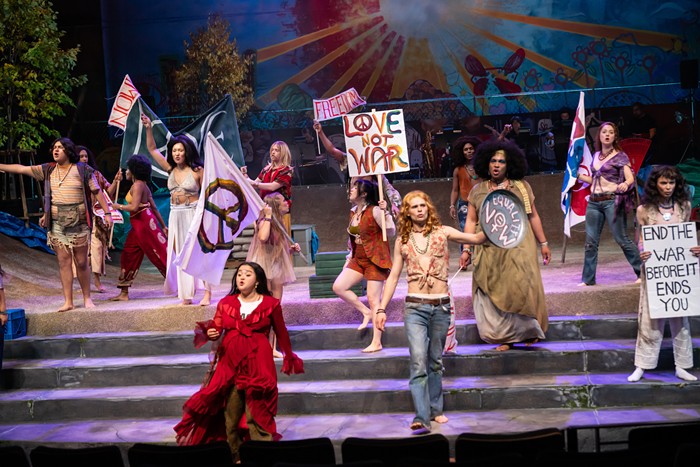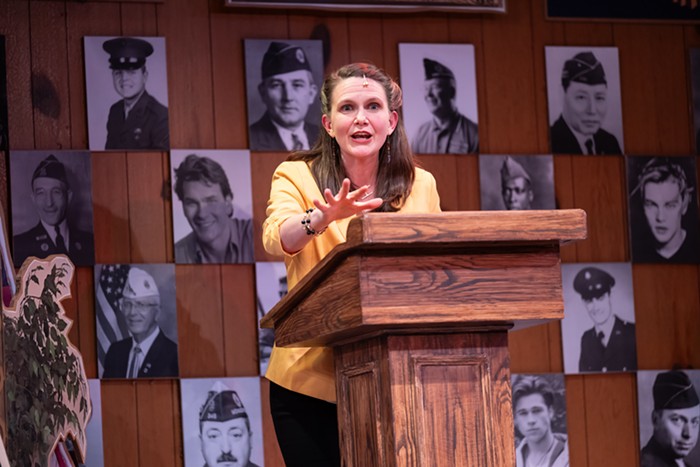PORTLAND CENTER STAGE (PCS) has long taken advantage of their intimate Ellyn Bye Studio to stage one-person shows, from 2006's I Am My Own Wife to Storm Large's seemingly endless run of Crazy Enough to the adventurous Mike Schlitt, who's currently hogging the stage. Recently, those shows have had an autobiographical focus, keeping pace with a cultural hunger for memoirs, public dirty-laundry airings à la Mortified, and any event that promises "true stories from real people."
So Mike's Incredible Indian Adventure is essentially Mike Schlitt talking about himself for 80 minutes, supplemented by the occasional video. (The show is directed by Nancy Keystone, Schlitt's wife and the creator of one of the most ambitious shows PCS has ever undertaken, last year's Apollo). Schlitt opens by recapping his own life up to the point at which the titular adventure begins: He describes himself as a teenager convinced he's destined for cinematic greatness; a twentysomething who lives the life of an artist without ever making any art; a thirtysomething-year-old man who wants to settle down and start a family, but pines for his still-unrealized masterpiece.
And that's when Indian adventure knocks. Schlitt is offered a job directing a production of Neil Simon's They're Playing Our Song that's scheduled to tour India—and, though he's got an aversion to Simon and no particular attachment to India, he accepts the gig. He figures he can make a movie out of this sure-to-be-wacky experience, thus knocking out a masterpiece and a paycheck in one sub-continental jaunt.
His time in India, he tells us, was characterized by shockingly bad performances, unaccountably enthusiastic press, and the gradual realization of just how shady his show's booking agent was. When he returned home, despite reels and reels of film, he still didn't know how to make a movie about his trip... and so he wrote a play about his inability to make a movie, which feels like nothing more than a shortcut around the fact that he never really figured out what it is he wanted to say. He's clearly hoping that the show's meta quality will impress (or, if you'd rather, there's a culturally condescending insight about moving in circles instead of straight lines), but it all feels like a last-ditch effort to reclaim something, anything of value from an experience better relinquished to the cutting-room floor.



















